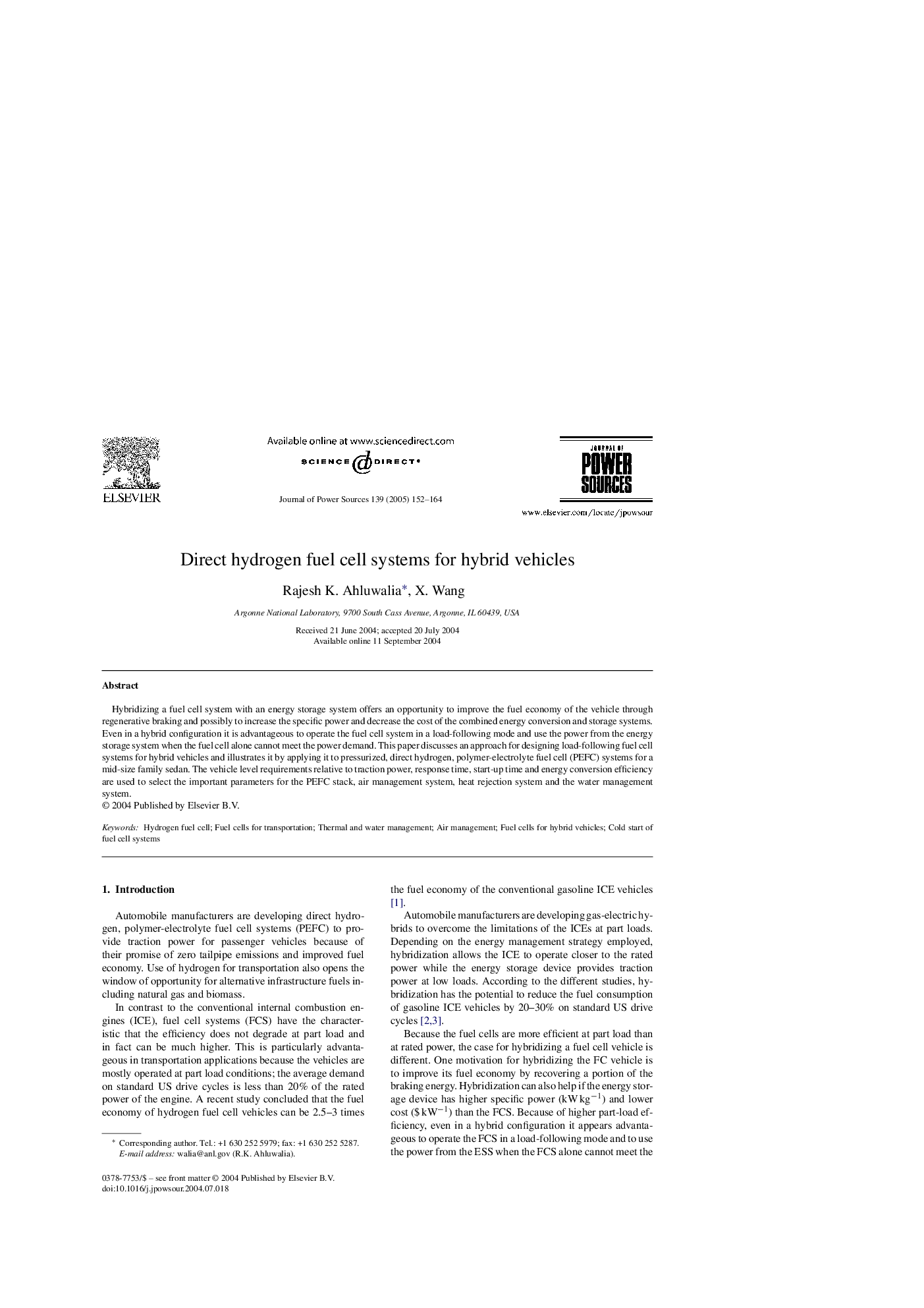| Article ID | Journal | Published Year | Pages | File Type |
|---|---|---|---|---|
| 9760509 | Journal of Power Sources | 2005 | 13 Pages |
Abstract
Hybridizing a fuel cell system with an energy storage system offers an opportunity to improve the fuel economy of the vehicle through regenerative braking and possibly to increase the specific power and decrease the cost of the combined energy conversion and storage systems. Even in a hybrid configuration it is advantageous to operate the fuel cell system in a load-following mode and use the power from the energy storage system when the fuel cell alone cannot meet the power demand. This paper discusses an approach for designing load-following fuel cell systems for hybrid vehicles and illustrates it by applying it to pressurized, direct hydrogen, polymer-electrolyte fuel cell (PEFC) systems for a mid-size family sedan. The vehicle level requirements relative to traction power, response time, start-up time and energy conversion efficiency are used to select the important parameters for the PEFC stack, air management system, heat rejection system and the water management system.
Keywords
Related Topics
Physical Sciences and Engineering
Chemistry
Electrochemistry
Authors
Rajesh K. Ahluwalia, X. Wang,
